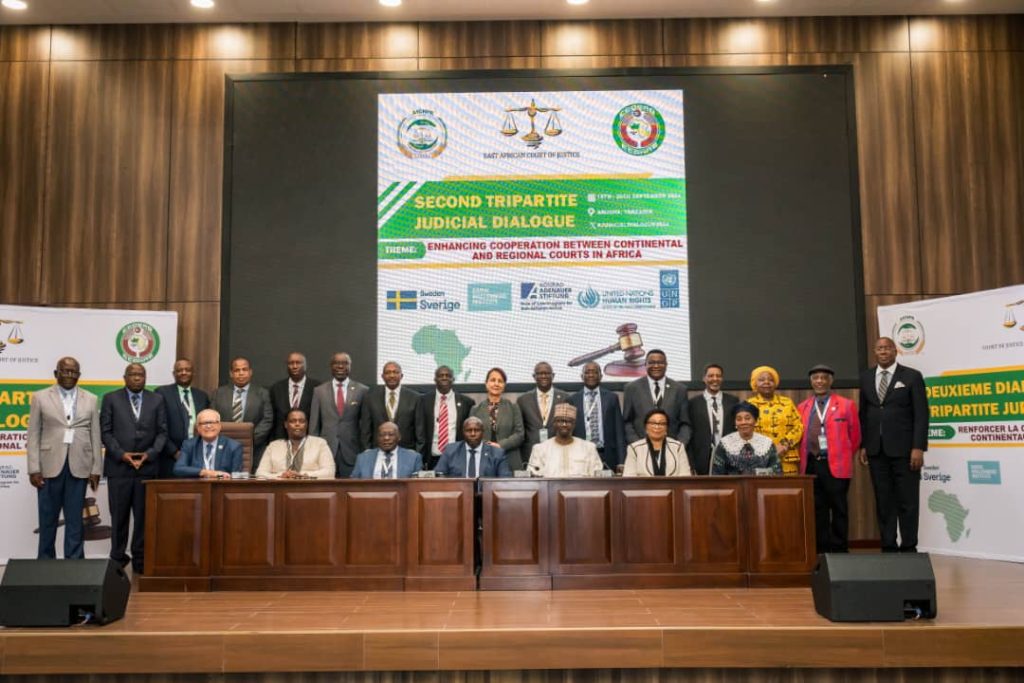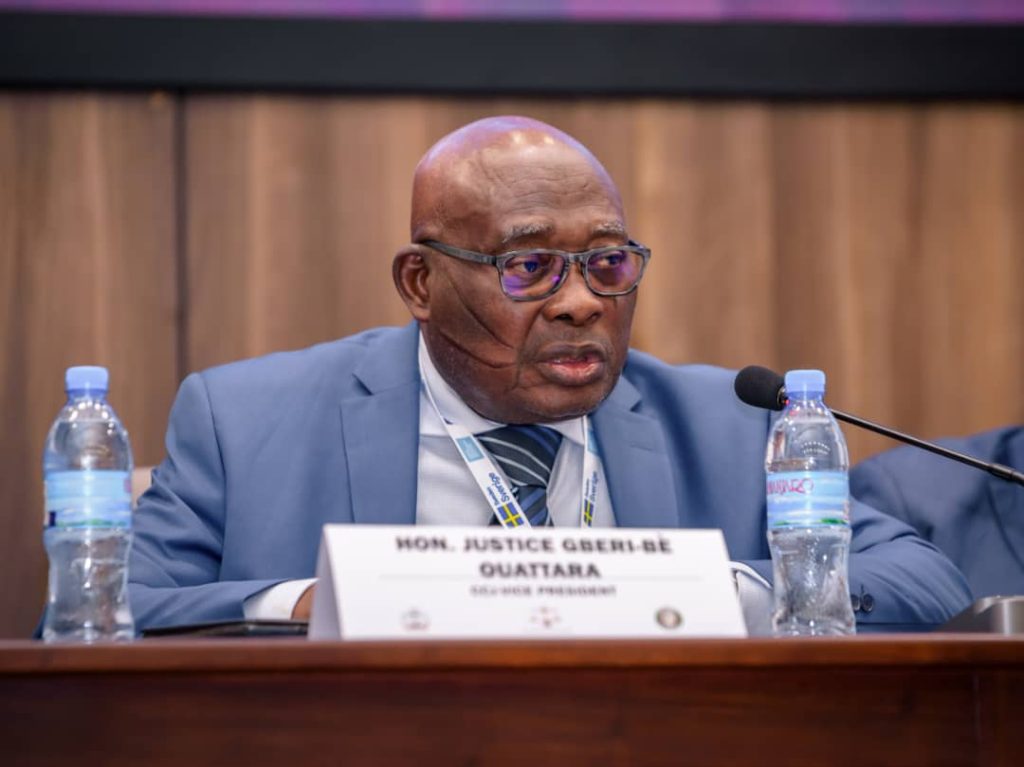Accra, Sept. 19, GNA – Dr. Yaouza Ouro-Sama, Chief Registrar of the ECOWAS Court of Justice (ECCJ), has addressed participants during the second Tripartite Judicial Dialogue in Arusha Tanzania, emphasizing the critical role of judicial cooperation in enhancing the protection and enforcement of human rights across the African continent.
Speaking on behalf of the Honorable Judges and staff of the ECCJ, Dr. Ouro-Sama reaffirmed the Court’s gratitude to its sister courts—the African Court on Human and Peoples’ Rights (ACtHPR) and the East African Court of Justice (EACJ)—and partners for their continued support and contributions to the success of the dialogue.
He underscored that such dialogues fostered collaboration among the courts and helped to disseminate jurisprudence, interpretation methods, and best practices, ultimately leading to a more cohesive interpretation and application of international human rights standards.
“The ECOWAS Court strongly believes that these dialogues are vital to ensuring that individuals within our jurisdictions benefit more effectively from human rights standards,” Dr. Ouro-Sama stated, expressing his confidence in the dialogue’s ability to reduce fragmentation in the interpretation of these standards.
Dr. Ouro-Sama had the honour of introducing and moderating the session led by Prof. Muhammed Tawfiq Ladan, Director General/CEO of the Nigerian Institute of Advanced Legal Studies, who provided insights into the objectives of the dialogue.

Recalling the first Tripartite Judicial Dialogue held in Zanzibar in 2022, Dr. Ouro-Sama noted that one key resolution was to convene the dialogue biennially to reinforce judicial cooperation.
This second session in Arusha aims to build on the progress made, with a specific focus on strengthening collaboration among the courts and addressing common challenges.
The concept note for the dialogue outlines several objectives, including knowledge sharing among African continental and regional courts with human rights mandate; exchange of judicial experiences on common challenges in human rights protection and best practices; and exploration of potential institutional developments to enhance cooperation.

Others are discussions on enforcement of decisions and amicable settlements; evaluation of the implementation of the action plan from the first dialogue; and cooperation with international human rights mechanisms, including UN Treaty Bodies.
Dr. Ouro-Sama expressed confidence that the three-day event would cover a broad range of thematic areas of mutual interest to the courts.
“We are pleased with the scope of this program, and we believe that the presentations and discussions will help achieve the key objectives outlined in the concept note.”
He concluded by inviting Prof. Muhammed Tawfiq Ladan to set the context for the dialogue, expressing hope that the discussions over the coming days would be fruitful and productive for all participants.
GNA